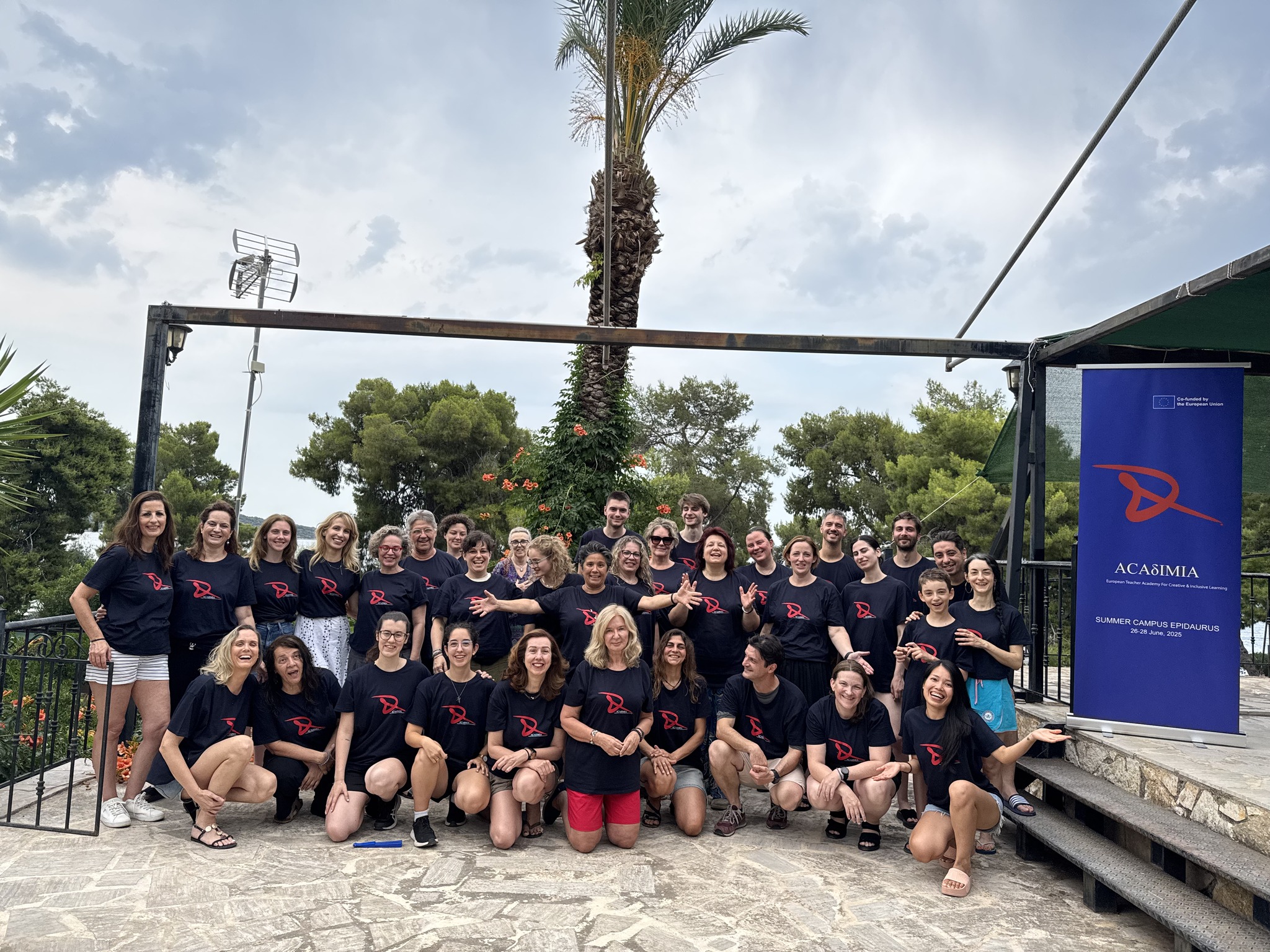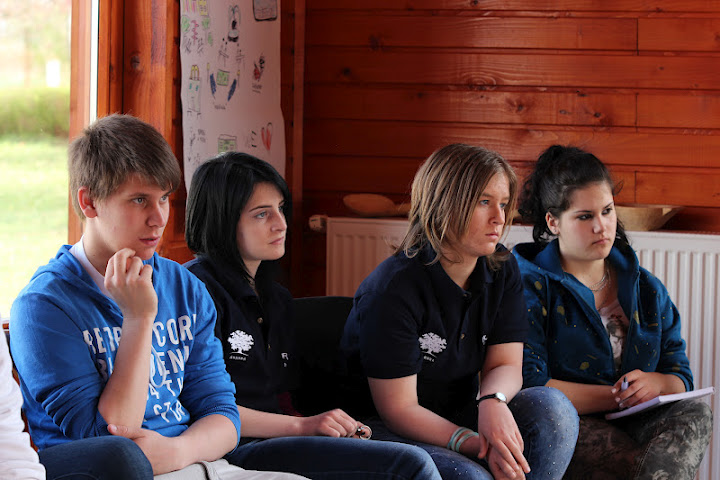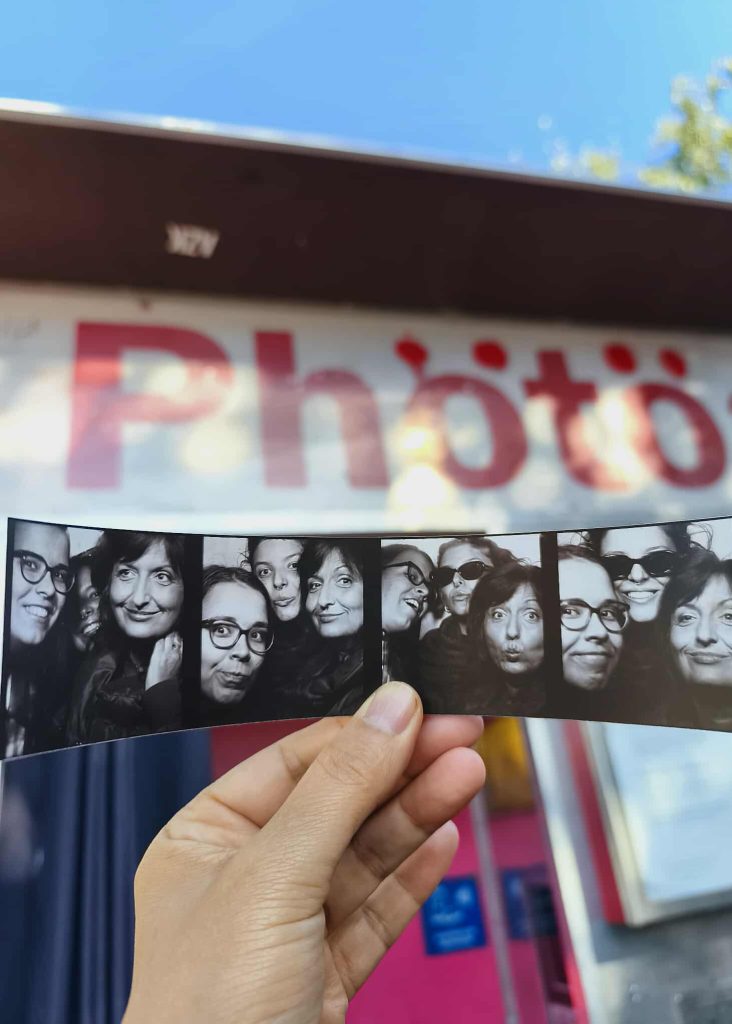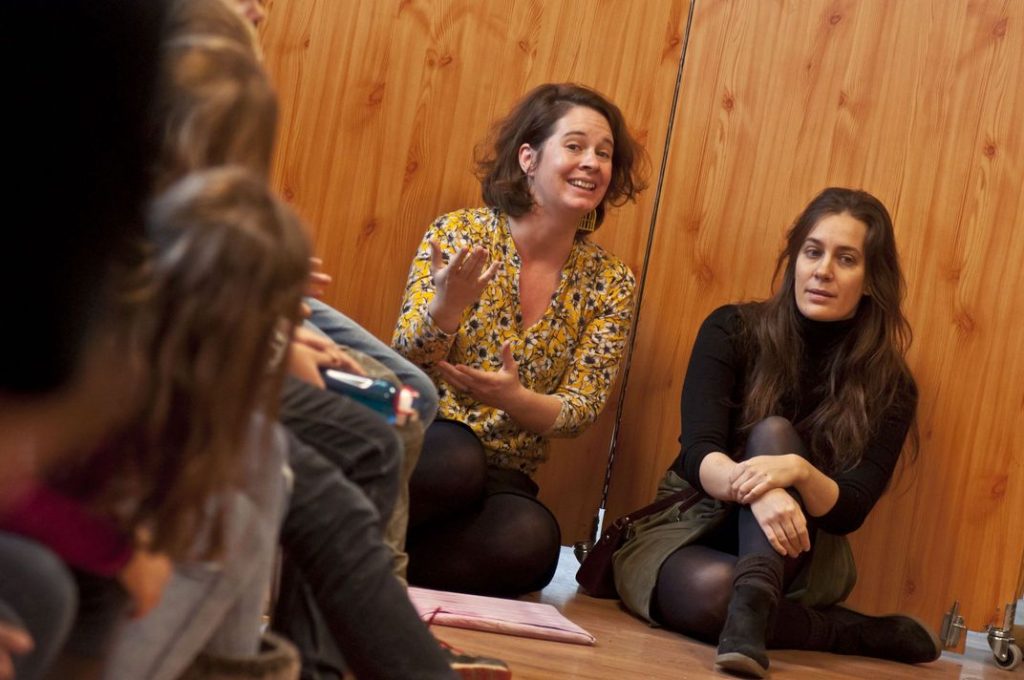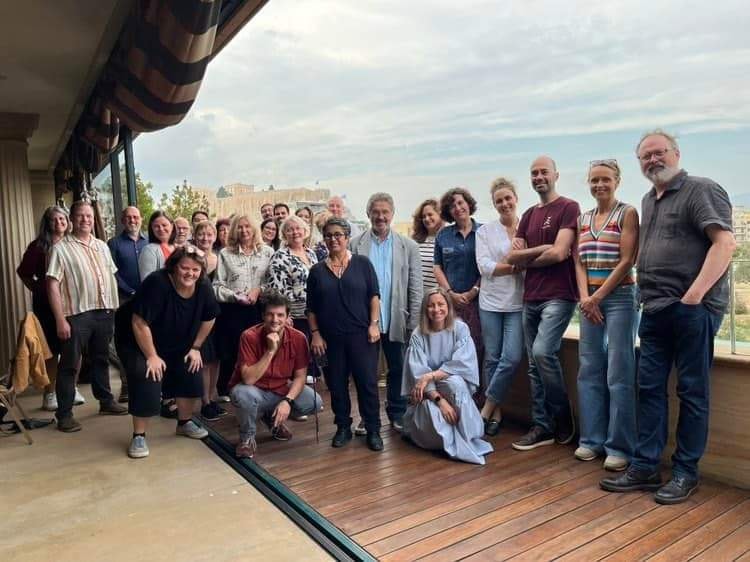Workshop in Epidauros
From 27th to 29th June 2025, thanks to InSite Drama, I had an opportunity to participate in the workshops of the Acaδimia – European Teacher Academy For Creative & Inclusive Learning programme in Epidaurus, where we could reflect together with our Bulgarian, Spanish, Italian, Greek, Belgian, Icelandic and Spanish teachers on Sophocles’ drama Antigone, and to learn about pedagogical methodology through experiential training sessions. In addition to the performance of Antigone in the ancient amphitheatre of Epidaurus (directed by Ulrich Rasche), I took part in three workshops.
The first workshop presented the steps of the documentary theatre method, using material consisting of newspaper articles and videos, documenting a real event. I could not identify documentary theatre with the term documentary theatre in Hungarian, because the focus was not on staging documents, but on a creative process using theatrical elements, based on documents, which can be used freely or only as inspiration. The material offered the circumstances of a train crash two years ago, which claimed many lives, and the subsequent investigation, actions and lack of action. Parallels with the character of Antigone were drawn with one of the people involved. The creative process was new for me.
In the first workshop after the performance, led by Ádám Bethlenfalvy we were given a toolkit for planning our own preparation and processing activities related to theatre performances. We focused on the duality and unity of form and content, the usefulness of looking for binary oppositions, the importance of asking questions in the right way, and using questions to open up and unfold the performance rather than expressing aesthetic judgements or opinions. In the second half of the workshop, we were able to look for different forms ourselves and try them out with the help of our peers.
The third workshop – also led by Adam Bethlenfalvy – gave an insight into the process drama through a session based on our own experience. We reflected together on the drama Antigone (no longer the performance) with the help of the offered roles of the guards.
We worked in small groups, pairs, sometimes in whole group, led improvisations, made scenes and rituals, and worked also in visual arts and creative writing. In reflecting on the process drama, we also discussed different issues of teacher in a role, questions were raised, e.g. how to choose the character whose role we can play to help and guide the play, what status of role to take, and what consequences and responsibilities has that status; how much space should be given to the players to unfold the situations. We ourselves could also try out role suggestions with the help of our peers.
Apart from the fact that it was a great experience to see Antigone in the ancient theatre of Epidaurus with its 14,000 seats, and that the performance itself was a great experience, it was very enriching for me to think and play with fellow teachers from different cultures, with different backgrounds but similar goals, workload, commitment, openness and interest. During the workshops, I encountered many questions that were useful for me, I increased my toolbox as a drama teacher with new techniques and methods, and I got inspiration to enrich my own work.
Fanni Szemerédi


